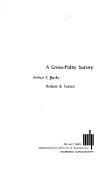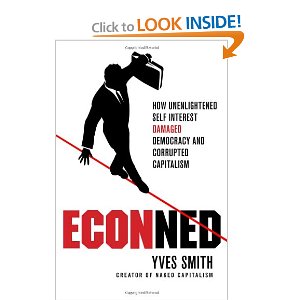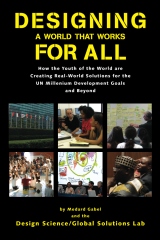
Franklin D. Kramer (Editor), Stuart H. Starr (Editor), Larry Wentz (Editor)
![]() Read Macgregor & Steele for the Other Half
Read Macgregor & Steele for the Other Half
January 1, 2011
I like the book and I like the authors and I do NOT like the fact that neither decision-support nor intelligence (decision-support) nor M4IS2* are in this book. Retired Reader's review–at five stars–is the review I would have written were I to read the book rather than just appreciate it via Look Inside the Book, and he and I have discussed the intellectual and leadership vacuum we all have in cyberspace where most simply have no idea what they are doing.
* Multinational, Multiagency, Multidisciplinary, Multidomain Information-Sharing and Sense-Making (M4IS2)
I must defer to Retired Reader and Bob Gourley on the good of this book, and hence five stars from em as well. However, and with proper regard for the the vastly experienced and well-intentioned authors, it troubles me that they do not include core concepts and context such as were developed by Robert Garigue, who died at the age of 55 before being able to produce his master work. His Preface to my third book, Information Operations: All Information, All Languages, All the Time and a couple of his briefings that I have featured at Phi Beta Iota the Public Intelligence Blog, are all that we have to remember his towering genius. As with all my books, all free online.
Here is Robert Garigue's bottom line: cyber-power–and cyber-security and what some would call today cyber-command (actually an oxymoron) are about TRUTH & TRUST. All this stuff about protecting legacy systems that are 90% rubbish or interdicting and interfering with the 10% of our enemies that have sophisticated system, is out of touch with reality. The Chinese have whipped our butts on both stealth and riding electrical circuits into NSA's computers and they did it because we pretend that spending money on contractor vapor-ware (SAIC's Trailblazer comes to mind) is somehow equivalent to being competent at something useful.
This brings me to the bottom line: cyber-power does not exist in a vacuum. It is, like a weapon, an extention of the humans that it serves or empowers. Right now US cyber-power is–to the extent it is even relevant or effective–being managed by gerbils (Madeline Albright's term, not mine) for utterly unsound and intellectually as well as morally bankrupt ends–and it is not doing a single thing to help infantry squads see over the next hill, survive improvised explosive devices that still cannot be detected (on behalf of the Marine Corps, my #1 requirement for MASINT in 1988 after seeing the wood-encased IED's in El Salvador in 1979-1980) and on and on.








